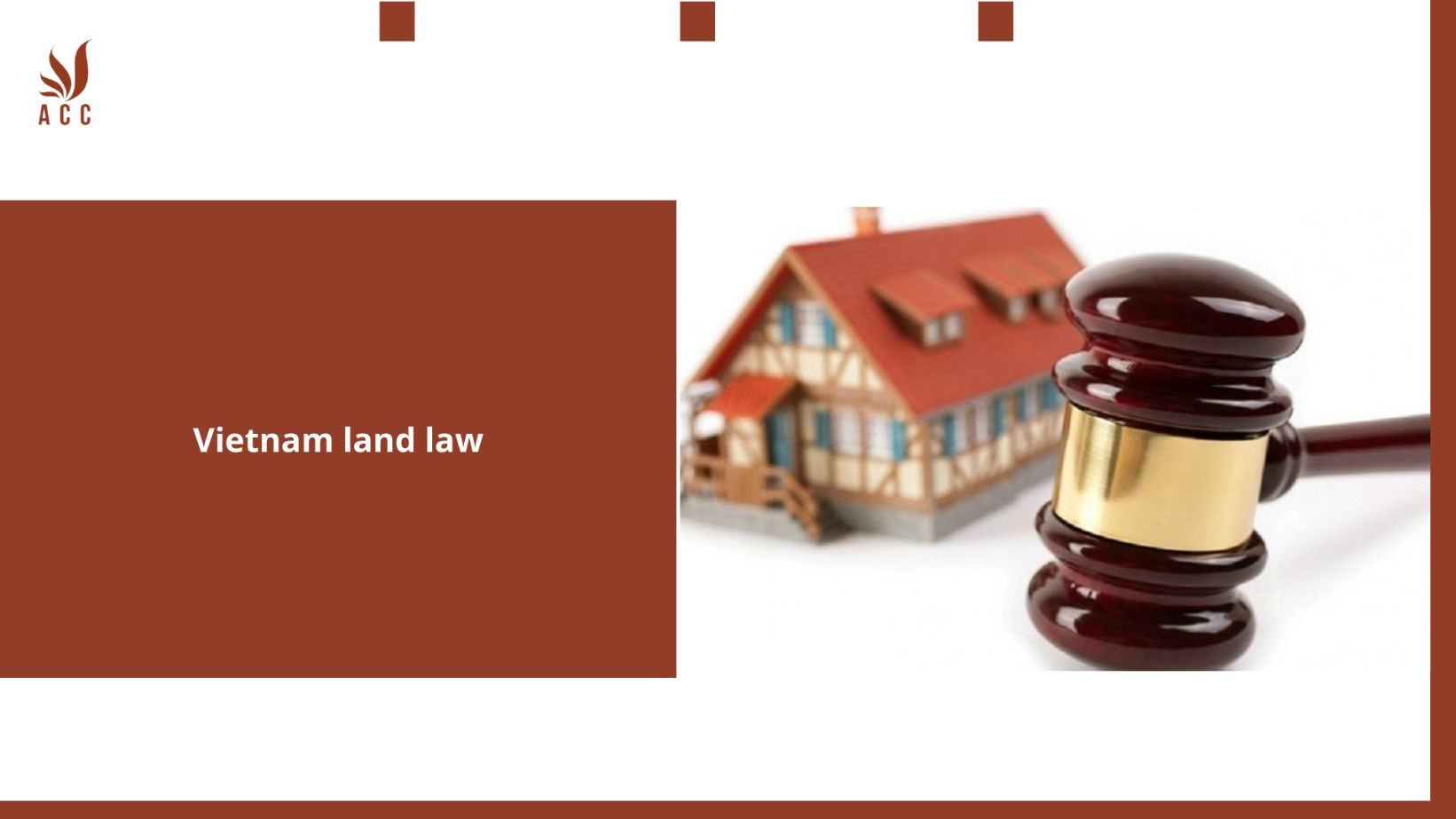The land law in Vietnam refers to the legal framework that governs land use, land ownership, and land-related transactions in the country. It is a crucial component of Vietnam's legal system, as land is a valuable and often limited resource in the country. Here are some key points about the land law in Vietnam:

1. State Ownership of Land:
Under Vietnam's land law, all land is owned by the state, and individuals or organizations are granted land use rights rather than actual ownership. Land use rights can be granted for various purposes, such as residential, agricultural, or commercial use.
2. Land Use Rights:
Land use rights are granted through land use right certificates, and they can have varying durations, often ranging from 20 to 50 years, depending on the purpose of the land. These rights can be transferred, leased, or inherited within the allowed timeframe.
3. Land Allocation and Lease:
Individuals and organizations can acquire land use rights through allocation or lease from the state. Land allocation is typically for agricultural purposes, while land leasing is more common for residential and commercial use.
4. Land Transactions:
Land use rights can be bought, sold, or transferred with the approval of local authorities. However, there are restrictions on land transactions to prevent speculation and ensure that land is used for its intended purpose.
5. Land Tax and Fees:
Land users are required to pay land use fees and land rent, which are based on the purpose and location of the land. These fees and rents contribute to the local budget and help fund infrastructure development.
6. Land Use Planning and Zoning:
Land use in Vietnam is regulated through land use planning and zoning, which designates specific areas for different purposes, such as residential, industrial, agricultural, and environmental protection.
7. When using ACC Law Firm's land law, entrepreneurs will receive
8. Q&A
Q1: What is the primary purpose of Vietnam's land law?
A1: The primary purpose of Vietnam's land law is to regulate land ownership, land use rights, land allocation, land acquisition, and land-related transactions. It aims to ensure sustainable land use, protect the environment, and address land-related issues in Vietnam, promoting economic development while safeguarding the rights and interests of landowners and users.
Q2: How is land ownership structured in Vietnam under the land law?
A2: In Vietnam, all land belongs to the people, and the state acts as the sole owner of land. Individuals and organizations are granted land use rights and land allocation, allowing them to use land for specific purposes, such as residential, agricultural, or industrial. Land use rights can be transferred, leased, inherited, or mortgaged, but ownership remains with the state.
Q3: What are the key principles and regulations for land use planning in Vietnam's land law?
A3: Vietnam's land law emphasizes the following principles and regulations for land use planning:
-
Sustainable Development: Land use planning should support sustainable development and protect the environment.
-
Zoning: It defines land use zones, such as residential, agricultural, industrial, and ecological zones, and specifies allowable land uses within these zones.
-
Public Interest: Land planning should prioritize public interests and the common good.
-
Land Redistribution: It provides for land redistribution, especially to agricultural households, to ensure equitable land distribution.
-
Compliance: Land users must comply with the approved land use planning and regulations.
Q4: What legal mechanisms exist for resolving land disputes under Vietnam's land law?
A4: Vietnam's land law provides several mechanisms for resolving land disputes:
-
Negotiation and Mediation: Parties involved in land disputes can attempt to reach a resolution through negotiation and mediation.
-
Arbitration: Arbitration may be used to resolve disputes when both parties agree to submit their case to a neutral third party for a binding decision.
-
Administrative Complaints: Individuals can file administrative complaints with local authorities to address land-related grievances.
-
Legal Action: In cases where other methods fail, individuals can resort to legal action and file lawsuits in Vietnamese courts to seek resolution.
-
Government Intervention: In certain situations, government authorities may mediate and resolve land disputes, particularly when they involve public interests.
Nội dung bài viết:






Bình luận